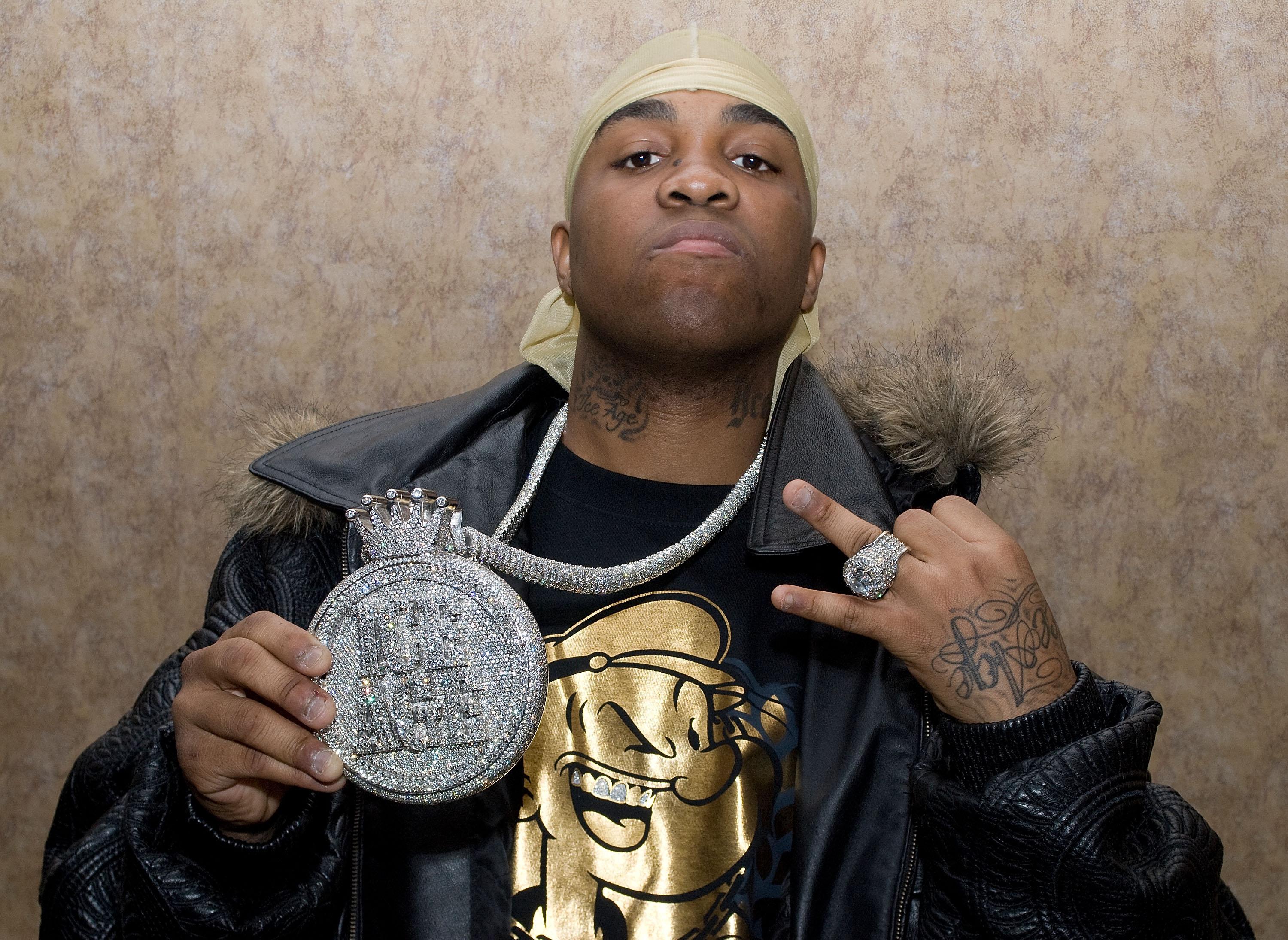Mike Jones' Number: The Untold Story & Legacy - [Must Read]
Remember the era when a phone number wasn't just a sequence of digits but a tangible connection to a musical icon? Mike Jones, the Houston-born rapper, etched his number into hip-hop history, transforming a personal detail into a cultural phenomenon.
For many, the ability to recite a phone number by heart is a testament to connection, a shorthand for reaching a loved one, a lifeline in a moment of need. Yet, a survey of sorts, revealed a surprising truth: only 49.4 percent of respondents could recall their mother's number, while a mere 12.2 percent could recall neither their mother's nor Mike Jones' famous digits. This disparity highlights the unique place Jones carved out in the collective consciousness, fueled by his music and the audacious decision to share his personal contact information with the world.
Mike Jones, a name synonymous with the mid-2000s hip-hop scene, found himself back in the spotlight, not through a new chart-topping single, but thanks to the enduring power of nostalgia. The Houston rapper, celebrated for his catchy hits like "Still Tippin'" and "Back Then," inadvertently created an interactive experience for his fans, a direct line to the man behind the music.
- Haley Batten Olympic Silver Mountain Biking Glory Usas Star
- Amy Baier Bret Baier Inside Their Story Family Life
The genesis of this notoriety lay in Jones' strategic embrace of his own phone number. During his rise in the Swishahouse collective, he ensured his number was disseminated through freestyles and tracks. This bold move solidified his place in the hip-hop landscape and gave rise to a dedicated fanbase eager to connect. However, the story of Mike Jones and his phone number extends beyond just the music. It encompasses the rise and fall of a star, the evolution of communication, and the often-blurred lines between public persona and private life.
| Category | Details |
|---|---|
| Full Name | Michael Ashley Jones |
| Born | August 12, 1981 (age 42 years), Houston, Texas, U.S. |
| Occupation | Rapper, Actor, Songwriter |
| Genres | Hip hop, Southern hip hop |
| Years Active | 2001present |
| Notable Songs | "Still Tippin'," "Back Then" |
| Debut Album | Who Is Mike Jones? (2005) |
| Catchphrase | "Who? Mike Jones!" |
| Controversies | Phone bill of $250,000 by Sprint (internet rumor), |
| Associated acts | Paul Wall, Slim Thug, Lil Wayne, Big Moe |
| Official Website (Reference) | AllMusic |
The saga of Mike Jones' phone number unfolded in real-time. The number wasn't just a lyric; it was a call to action. Fans, captivated by his music and the invitation to connect, dialed the number, eager for a brief interaction or at least the chance to leave a voicemail. At the height of his fame, Jones claimed to receive a staggering 40,000 calls daily, a testament to his popularity and the novelty of the experience.
The number became a symbol, a point of contact between a performer and his audience. The story of Mike Joness phone number is a reflection of hip-hop's history, reflecting the genres embrace of authenticity and direct communication. The number was more than just a collection of digits; it was a portal into the world of a rising star.
- Dare Taylor Bio Age Career Everything You Need To Know
- Braylin Bailey Latest Scenes Updates You Wont Miss
The song "Back Then" released in February 15, 2005, served as a cornerstone of his debut album, "Who Is Mike Jones?" The song's success was undeniable, propelling Jones into the mainstream and solidifying the memory of his phone number in popular culture. The memorable lines of "Back Then" and the subsequent success of his debut album, which went double platinum, cemented Jones's status as a prominent figure in the music world.
The internet, a powerful force in the early 2000s, magnified the reach of Mike Jones's number. Memes, social media posts, and forum discussions circulated, solidifying the rapper's phone number in the minds of a generation. The number's association with a successful rap artist ensured its longevity in the digital age.
The number became an intrinsic part of the narrative. The rapper embraced the attention, turning a potential annoyance into an opportunity. This self-promotion served him well, boosting his profile and fostering a sense of connection with his fans. This strategy, innovative at the time, underscored Jones' understanding of the growing relationship between artists and their audience.
The story of Jones' phone number continues to evolve. There was an internet rumor that Mike Jones was charged a phone bill of $250,000 by Sprint. The current status of the original number remains uncertain. However, Jones has since changed his number, inviting fans to keep up with his latest endeavors through different means.
The evolution of how we communicate has changed since the mid-2000s. Today, calling a celebrity's phone number is not as unique. A number of factors, including the rise of social media and the increased focus on privacy, have changed the way artists and fans interact.
However, in 2005, the act of dialing Mike Joness number was a way of engaging with the rap artist in a way that had previously been uncharted. The experience was interactive, a brief moment of connection. The story of Mike Joness number remains a striking reminder of a time when the lines between artist and audience were more porous, and a phone number could be a gateway to celebrity.
The legacy of Mike Joness phone number is a testament to the power of music. It is a reminder of the deep impact popular culture can have. More than just a phone number, it became a symbol of a particular era, of an artist's willingness to connect with his audience in a direct, tangible way. This approach built a lasting legacy in popular culture.
Recently, Mike Jones has been performing with artists such as LaRussell, at shows where the crowd chanted the phone number. The crowd chanting his number alongside LaRussell during a performance. The fact that the number is still remembered decades later is a testament to Jones impact.
The lasting impact of Jones's hit song "Back Then," with its catchy chorus, ensures the number's place in cultural memory. The accessibility of Jones's contact information created a unique, personal connection with his fans, a stark contrast to the guarded nature of celebrity in the present day.
In the modern music landscape, where artists are often carefully shielded from direct contact, the story of Mike Jones serves as a reminder of a time when artists were more accessible, and fans could connect with their heroes in a way that was both innovative and personal. Mike Jones' phone number became a cultural touchstone. This number, immortalized in song and memory, continues to live on as a unique anecdote.
Mike Jones's "Back Then" song stands as an interesting snapshot of the early 2000s music scene. It highlighted a blend of confidence and self-promotion. This innovative approach to building his brand became his trademark in hip-hop history.
The lasting cultural impact of his phone number, and the song "Back Then", shows how a single artistic decision can transform into a legacy. The memory is perpetuated by remixes, parodies, and social media. The Houston rapper, in some ways, became a pioneer in the art of connecting with fans directly.
The story of Mike Jones' phone number is more than a piece of nostalgia; it is a lesson in how to connect with an audience. His willingness to share his contact information became a memorable and significant moment in the world of hip-hop. It's a moment that still resonates today, reminding us of the personal connection that music can build.
The story of Mike Jones serves as a reminder of a time when artists and fans were connected in a more tangible way. The story continues to inspire and entertain.
Article Recommendations
- Jaz Elle Agassi Beyond Tennis Legends Andre Agassi Steffi Graf
- Jack Wright Tiktok Stars Rise I Jack Wright More



Detail Author:
- Name : Walter Lueilwitz
- Username : morar.jonathan
- Email : peggie35@hotmail.com
- Birthdate : 1998-03-03
- Address : 95041 Dibbert Valley Suite 106 Lake Jettie, CO 90224
- Phone : +18316097859
- Company : Rowe Inc
- Job : Industrial Engineer
- Bio : Rerum reprehenderit quam laboriosam totam sed quibusdam. Aspernatur inventore ut quas earum dolore quasi ut.
Socials
tiktok:
- url : https://tiktok.com/@fritsche
- username : fritsche
- bio : Quia doloribus sapiente voluptate illum hic quo.
- followers : 3371
- following : 1619
instagram:
- url : https://instagram.com/efritsch
- username : efritsch
- bio : Necessitatibus modi harum eum quam voluptatem autem nisi. Perspiciatis voluptatem ut magnam et.
- followers : 3793
- following : 2146